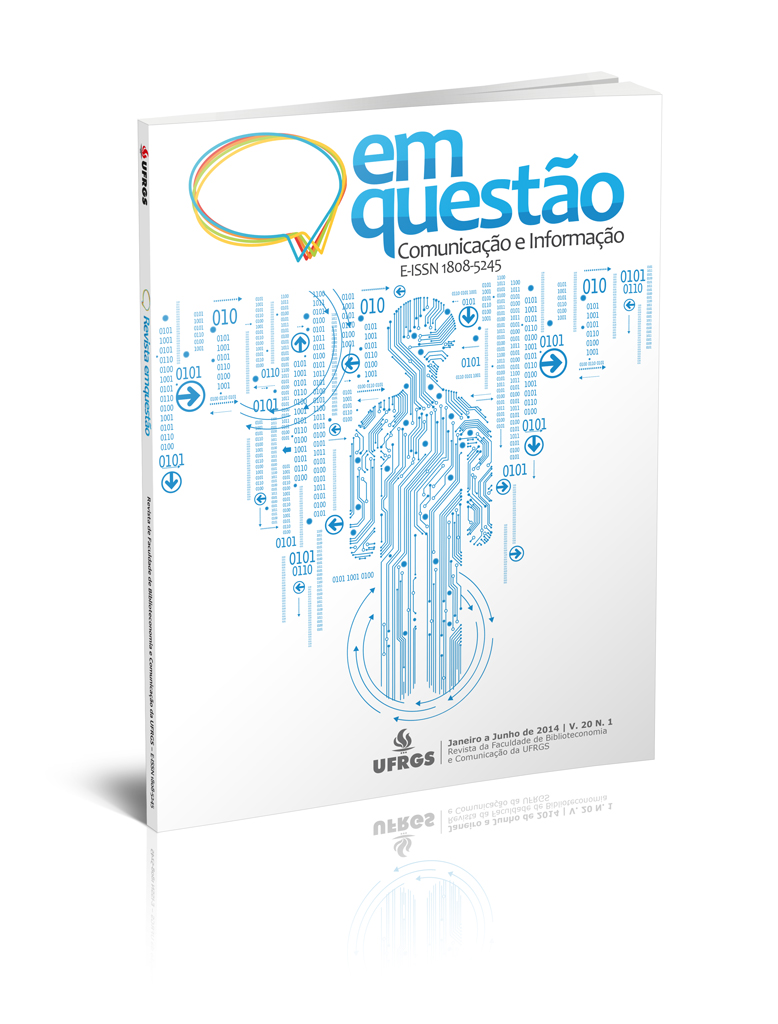A Produção Acadêmica no Brasil sobre Ciência da Informação: um estudo a partir da Teoria do Conhecimento de Habermas
Palabras clave:
Ciência da Informação. ENANCIB. Teoria do Conhecimento. Jürgen Habermas.Resumen
A ciência da informação busca em outras áreas do conhecimento elementos que a auxiliem na ampliação da compreensão acerca de seu objeto de estudo, a informação. É importante analisar de que forma o processo de construção teórica vem acontecendo. Esse trabalho tem como objetivo avaliar o estado da arte da área de Ciência da Informação no Brasil, a partir da análise de trabalhos publicados nos anais do Encontro Nacional de Pesquisa em Ciência da Informação (ENANCIB), no período de 2003 a 2009, utilizando-se como base conceitual a teoria do conhecimento de Jürgen Habermas. Este estudo pode ser caracterizado como uma pesquisa documental, em que predomina o método qualitativo de natureza interpretativa. Entre alguns dos resultados, percebeu-se que o interesse técnico engloba aproximadamente 91% de todos os trabalhos publicados nos ENANCIBs, enquanto o interesse prático representa aproximadamente 8% dos trabalhos e o interesse emancipatório constitui apenas 1%. Foi possível ainda verificar na análise dos resultados do estudo uma tendência generalizada ao interesse técnico, que de certa forma reproduz os métodos vigentes nesse campo científico em detrimento dos interesses práticos e emancipatórios que valorizam e potencializam a presença dos diversos atores sociais.Descargas
Descargas
Publicado
Cómo citar
Número
Sección
Licencia
Derechos de autor 2014 André Felipe de Albuquerque Fell, Luciane Paula Vital, Murilo Artur Araújo da Silveira, Fabio Assis Pinho, Anna Elizabeth Galvão Coutinho Correia

Esta obra está bajo una licencia internacional Creative Commons Atribución 4.0.
Autores que publican en esta revista están de acuerdo con los siguientes términos:
Los autores mantienen los derechos autorales y ceden a la Revista el derecho de la primera publicación, con el trabajo licenciado bajo la Licencia Creative Commons Attribution (CC BY 4.0), que admite compartir el trabajo con reconocimiento de la autoria.
Los autores tienen autorización para asumir contratos adicionales en forma separada, para la distribución no exclusiva de la versión del trabajo publicada en esta Revista, como para publicar en repositorio institucional, con reconocimiento de autoria y publicación inicial en esta Revista.
Los artículos son de acceso abierto y gratuitos. Según la licencia, usted debe dar crédito de manera adecuada, brindar un enlace a la licencia, e indicar si se han realizado cambios. No puede aplicar términos legales ni medidas tecnológicas que restrinjan legalmente a otras a hacer cualquier uso permitido por la licencia.









